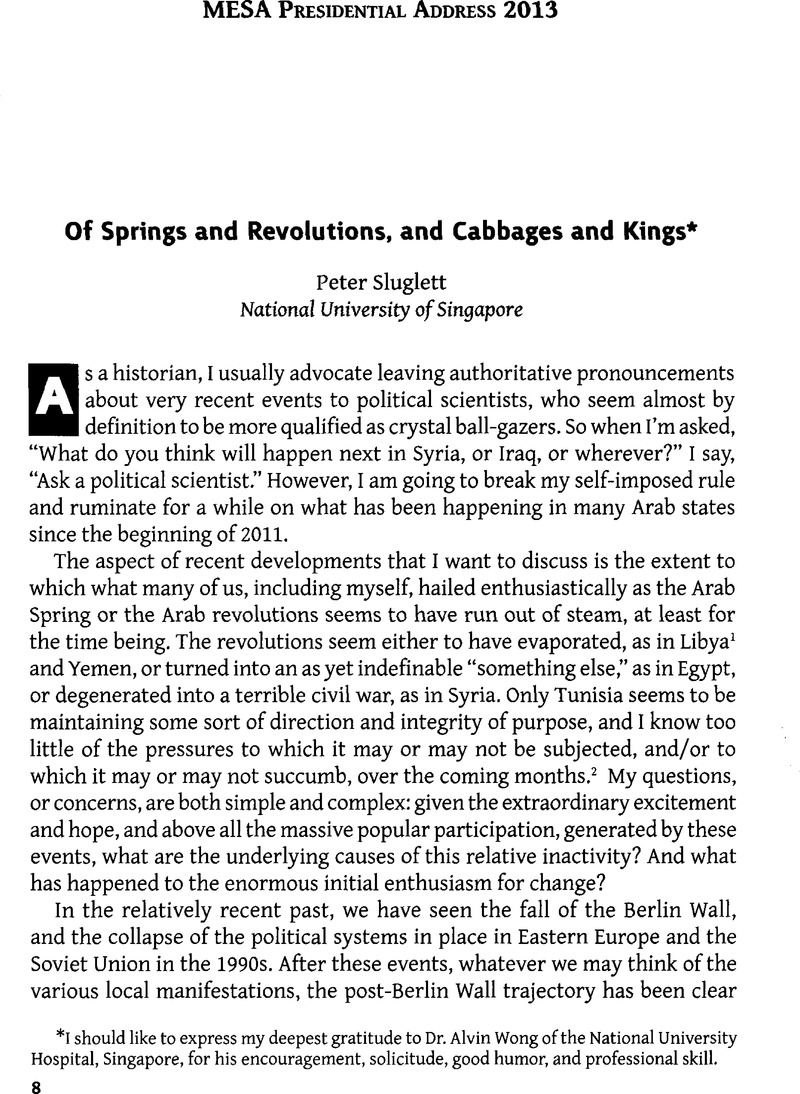No CrossRef data available.
Published online by Cambridge University Press: 09 March 2016

I should like to express my deepest gratitude to Dr. Alvin Wong of the National University Hospital, Singapore, for his encouragement, solicitude, good humor, and professional skill.